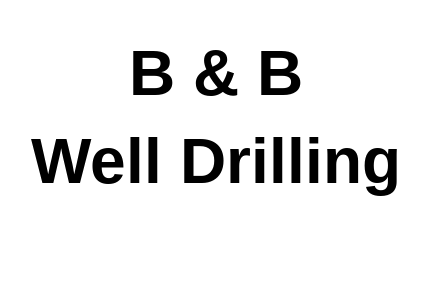Protect Your Water Well System
Whether you are planning a well, are a new well owner or have owned a well for a long time, it’s important to know the basics of water wells. Knowing the basics can equip you to make sound decisions about your water well system. According to the National Ground Water Association
(NGWA) homeowners should follow these steps to protect your water well system and your investment:
- Always use licensed or certified water well drillers and pump installers, like B & B Well Drilling, when a well is constructed, a pump is installed or the system is serviced.
- An annual well maintenance check is recommended. Drinking water should be checked any time there is a change in taste, odor or appearance, or when the well system is serviced.
- Keep hazardous chemicals, such as paint, fertilizer, pesticides and motor oil far away from your well.
- Periodically check the well cover or well cap on top of the casing (well) to ensure it is in good repair.
- Always maintain proper separation between your well and buildings, waste systems or chemical storage facilities. Professional contractor B & B Well Drilling knows the rules and regulations in South Carolina.
- Don’t allow back-siphon-age. When mixing pesticides, fertilizers or other chemicals, don’t put the hose inside the tank or container which may cause contamination.
- When landscaping, keep the top of your well at least one foot above the ground. Slope the ground away from your well for proper drainage.
- Take care in working or mowing around your well. A damaged casing could jeopardize the sanitary protection of your well. Don’t pile snow, leaves, or other materials around your well.
- Keep your well records in a safe place. These include the construction report, as well as annual water well system maintenance and water testing results.
- Be aware of changes in your well, the area around your well, or the water it provides.
- When your well has come to the end of its serviceable life (usually 20+ years), have a qualified water well contractor, such as B & B Well Drilling, decommission it after constructing your new system.
The following is a list of items to check according to the NGWA:
Well Depth
Easily done by tying a weight on a tape. Compare to the well
construction report.
Well Yield
Ask how many gallons per minute (gpm) the well tested, what distance
the water level dropped, and how quickly the level recovered.
Well Cap
Make sure the well is capped, secure, and the cap is at least 6 inches
above ground level.
Disinfection
Ask whether the well was disinfected
Well Construction Record
Get your copy of the well record. The contractor is required to deliver a copy of the record to the owner. We advise you to keep your well record with your house deed for future owners.
Schedule a Maintenance Check or Inspection
Call B & B Well Drilling at 843-430-0811 or fill out the form below to schedule an inspection or regular maintenance check today!
